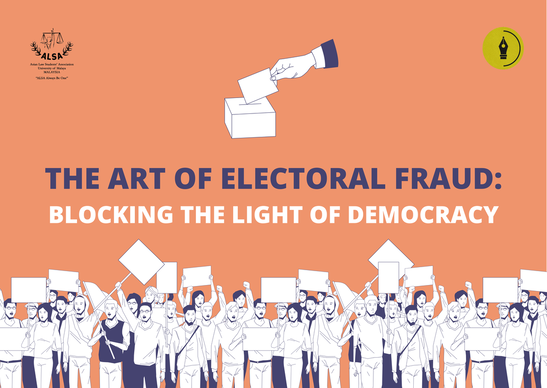|
Written by Siti Sarah and Shafiq Zafran from the Asian Law Students Association of the University of Malaya. Edited by Chrystal Foo. Reviewed by Luc Choong and Celin Khoo Roong Teng. It is irrefutable that the right to vote is intrinsic to a democratic state. In Malaysia, this right is safeguarded by the Federal Constitution. However, the mere right to vote is not enough to ensure a free and fair election. This article aims to spotlight occurrences that have tainted this inherent right and efforts that have been taken to circumvent such instances.
I. INTRODUCTION A. Elections and Electoral Fraud The power to govern and change the course of destiny gets rewritten after every systemic change of ruling. In the Malaysian political context, the primary form for a change of ruling is conventionally done through an election. Generally, a general election (‘GE’) is hosted around every five years to ensure that democracy maintains as a staple in the Malaysian community. The Malaysian Government comprises three branches: the Executive, the Judiciary and the Legislature. This article will emphasise the Executive that is spearheaded by the Prime Minister as the primus inter pares. The appointment of the Prime Minister falls under the Yang di-Pertuan Agong’s discretionary powers by virtue of Article 40(2)(a) of the Federal Constitution.[1] Malaysia practices parliamentary democracy; thus, the party or coalition with the absolute majority in Parliament will be declared as the government of the day, with its leader conventionally assuming the post of Prime Minister.
1 Comment
|
|
|
PhoneTel : +603-7967 6511/6512
Fax : +603-7957 3239 |


 RSS Feed
RSS Feed